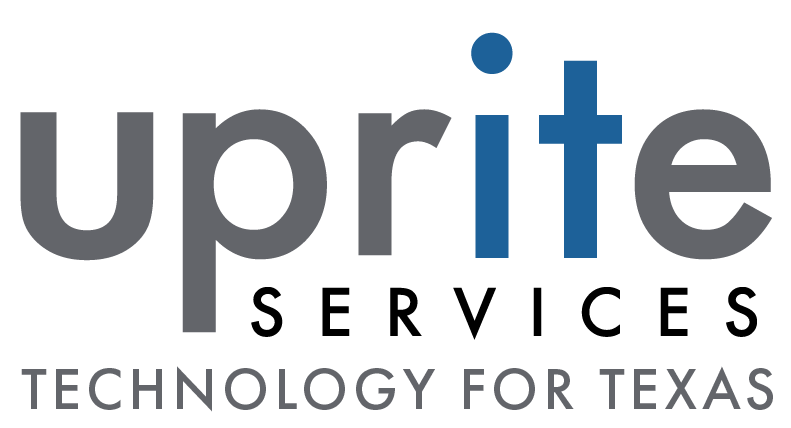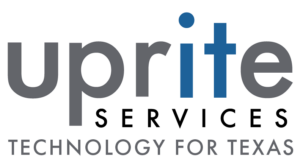
Number one rule when running a business and wanting to protect your assets? Don’t underestimate the importance of securing your network! Network security best practices should take the lead part in what can otherwise become a cybersecurity drama with a tragic ending.
That’s because your network is the bridge that brings everyone in your business sphere together. So, to maximize protection of your sensitive data in this 24/7 meeting place, you must build a layered defense.
In this article, therefore, we’ll discuss some of the best practices for network security based on its importance to your success. So –
Why is Network Security Important?
There are several reasons for giving importance to network security. The overall one is that, with the advent of cloud and work from home, the surfaces of your network and infrastructure perimeter have become larger. Here are some others reasons.
1 Network security is a foundational part of cybersecurity in general
Or put another way, cybersecurity basics start with network security!
The two concepts get mixed up in people’s minds but they’re not identical. Cybersecurity is the whole deal, including securing your network, your devices, and your data.
Your network, on the other hand, supports your systems and apps.
You cannot afford to have downtime in today’s economic environment – nor lose competitive edge in a digital marketplace. It’s too easy for consumers to take their custom elsewhere on the internet if your website’s down for even a few hours. People’s patience in limited!
2 Network security ensures the integrity of your sensitive data assets and network resources
It keeps them private to your organization, employees, and specific authorized others.
With ever more sensitive information stored or passing through your various devices, it’s essential to keep unauthorized players out.
What might this sensitive information look like? It could be
- plans for the future of your business,
- financial data you wouldn’t want widely known,
- innovative marketing materials and client offers, or
- personal information…
…in fact, everything that represents your brand and contributes to its survival. If it’s stolen, you can lose competitive edge as well as your business reputation.
3 Your client data is not yours to risk losing!
There are many regulations today that ensure huge fines for loss of someone’s personal data if there’s a network breach. It simply isn’t worth the risk. Example regulations include HIPAA and (in Europe) GDPR.
Network security sounds minor in the overall scheme of cybersecurity, but the public always remembers data security disasters concerning financial, medical, or personal ID, etc. No one will allow you to forget your network was hacked, however many years pass!
Types of Network Security
All network security measures have one common goal: to ensure that
- only authorized users can access data, and
- data is not modified or destroyed in an unauthorized manner.
There are several types of network security, however, and you need to equip your network with a variety of them to provide the layers of defense you need. Here are four.
AAA: Authentication, Authorization, Accounting
Authentication verifies you are who you say you are. It’s a first level solution every business should use.
Authorization, on the other hand, determines who can access which parts of your system (we’re not concerned with accounting here).
Two-factor authentication (2FA) has become hugely successful in eliminating network access by rogues – 99% already by 2019, according to Microsoft.
You should enable this – and authorization – whatever other network security best practices you deploy. It’s simple and effective.
Antivirus and Anti-Malware Software
Attacks like worms, trojan horses, and viruses target your system with the aim of damaging your devices or stealing data.
Good antivirus software, however, will find and remove malicious files on your computer before they can cause damage or harm. This includes
- malware that may have been installed without your knowledge, and
- spyware programs that monitor your activity online without your consent.
Antivirus software also checks downloaded files against databases of known viruses and tells you if they’re safe to open. If the software finds anything suspicious, it will warn you about it before allowing you to proceed with opening the file.
Data Loss Prevention (DLP)
DLP software works by detecting any sensitive information leaving a network and alerts administrators to the breach.
Supposing a hacker starts downloading your address list! Data loss prevention (DLP) is the answer – a key component of any data center security plan. It allows you to proactively protect against loss or misuse of data in this way and helps you prevent unauthorized or fraudulent access to sensitive information.
Firewalls
The press has sometimes made firewalls seem somewhat outdated as technology progresses. But a firewall monitors and filters your network traffic – to and from a private network or private branch exchange (PBX).
The firewall applies pre-defined rulesets, which it uses to allow or deny access for specific types of traffic. You have control of changing the rulesets to allow or deny new types of traffic.
In addition, firewalls are often used in conjunction with other security devices such as intrusion detection systems(IDS) and antivirus software to monitor your network for malicious activity.
Before we address best practices, you may by now have realized you should at least consider managed IT services! Perhaps because you really need to concentrate on your business, not on IT details! Perhaps because you suspect it may well be cheaper in the long run. If so, read about our managed services here, and give us a call if that solution chimes with you.
Otherwise, let’s move on to best practices.
Network Security Best Practices
1. Perform a Network Audit
A network audit allows you to have a better overview of your security needs at the moment. A thorough security risk assessment identifies any vulnerabilities/gaps in your network that attackers can exploit. The risks to your network include
- poor understanding of systems and processes,
- practices where risk is hard to assess, and
- work from home/remote access.
In general, you should have regular security audits, ideally with a third-party vendor – especially if you’re dealing with very sensitive or large amounts of data.
A proper network audit ensures you can:
- Eliminate any security vulnerabilities
- Remove unused and unnecessary applications
- Replace legacy apps with modern equivalents
- Update antivirus/anti-malware software
- Review backup and storage arrangements for your data
2. Deploy Network Security Devices
Security devices are any hardware or software you use to protect your network. It’s worth remembering that if your boot process is hacked, your security software alone cannot protect you. That’s why hardware is essential, as well as software solutions.
Different types ofsecurity devices serve different purposes such as
- scanning,
- providing encryption,
- managing network traffic,
- detecting threats, or
- providing secure remote access.
One important security device your organization should have is, as mentioned above, a firewall – via software or hardware – to protect your systems from uncontrolled access and malicious actors.
Moreover, to ensure you have the best defense for your network, your organization should use additional systems such as network access control to give you
- a visible overview of everything on the network and
- control over your infrastructure.
3. Disable File-Sharing Features
File sharing on public servers and networks poses a security danger both to you and the people you’re sharing the file with.
Ensure you’re on a private server – or use a virtual private network (VPN) – when you need to share or exchange files.
Note, however, that a VPN masks your identity and IP address, and encrypts any data you send, BUT it cannot protect you against visiting virus-ridden websites.
Nowadays, however, with advanced platforms like Microsoft 365, you can share and collaborate with others safely and avoid risky file-sharing sites.
4. Update Antivirus and Anti-Malware Software
This is essential for all in-house, remote, and in-the-field employees – even if you have to pay for the newest versions. Old versions are useless against newly invented threats!
Using the latest software protects not only their machines but also your whole business network. It’s pretty obvious – but easily overlooked!
5. Secure Your Routers
Network routers are important devices in your company network. They’re both a receiver and a distributor of network/internet in your physical space. As such, securing these devices is crucial since a security breach can take place in the span of a second.
Measures to secure your router include
- putting it in a more secure location,
- setting up private vs. public access if applicable for your business e.g. in a shop where visitors expect access,
- installing a CCTV camera for surveillance,
- keeping firmware and software updated, and
- changing the network name and login information regularly.
Network Security Best Practices: Why Use Managed IT Services
Are you concerned about your network security risks? Is the daily stress of IT troubleshooting taking your mind off your business?
If so, consulting a third party is a good way to get an unbiased opinion about your security posture and sound, up-to-date solutions to suit your unique network security needs.
Upright Services is grounded in values of humility, passion, and servanthood, among others. That’s why we become partners: part of your team. We don’t take over!
We simply work expertly with the needs of smaller to mid-sized businesses like yours, where you want to strengthen your network defenses but maybe lack time or IT resources to do it yourself.
Our managed or co-managed IT services are available in Houston, Southeast Houston, San Antonio, and Dallas. Contact us today to discuss your requirements, and one of our experts will get in touch. We’d love to hear from you.

